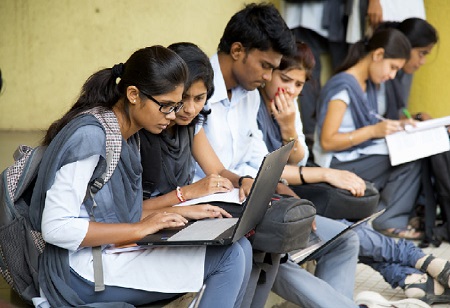India improve the quality of its technical education and increase the number of job opportunities available to students, the World Bank has authorised a loan of USD 255.5 million. Over the next five years, the project will support 275 government-run technical institutes, which will benefit more than 3,50,000 students per year, according to a statement from the US-based global organisation.
From 29 million students enrolled in 40,000 colleges in 2011–12 to 39 million students enrolled in 40,000 universities in 2019–20, India's higher education has been steadily growing. India's postsecondary education system is among the biggest in the world, but recent research has revealed rising gaps in both technical and non-technical skills like reasoning, interpersonal communication, and dispute resolution.
The Multidisciplinary Education and Research Improvement in Technical Education Project will help to raise student employability and skills by placing a higher emphasis on research, entrepreneurship, and innovation as well as bettering governance in technical schools. Students will have access to updated curricula that include cutting-edge communication and climate resilience technologies as part of the initiative. Better internship and employment services, as well as networking chances with professional organisations, will also be advantageous to them.
"The postsecondary education system in India is among the biggest and fastest-growing in the entire globe. Auguste Tano Kouame, the World Bank's Country Director for India, the project would help the National Education Policy 2020 of the Indian government, which calls for modernising this crucial industry to better educate students for future professions and economic prospects. The statement, "Improving female participation in technical education will receive special attention," was made.
The project will provide assistance to participating institutions in planning outreach initiatives aimed at educating parents, guardians, and prospective female students about technical education programme options, increasing gender sensitivity, and dispelling myths about women's abilities in the STEM (science, technology, engineering, and math) fields.
Female students will be urged to interact with mentors and alumni in order to motivate them to complete their degrees and get a head start in the job. Less than 30% of students are currently undergraduate engineers, and women from scheduled castes and scheduled tribes face additional disadvantages.
In terms of innovation and research, studies also emphasise the need to increase India's connections with business and society. Of the 9,581 technical education institutes, only 504 have started at least one company, and of those, 525 have done so in the preceding two years, starting between two and four. The programme will promote research and innovation in high-priority areas including climate change and sustainable energy.
Nina Arnhold and Namrata Tognatta, the project's task team leaders, "the project will also help participating institutions strengthen their governance and internal quality assurance mechanisms by building their capacity for self-assessment, developing institutional quality policies, and preparing for accreditation."
The project will assist in establishing quality assurance cells at the state level to support the nation's objective of giving educational institutions more empowerment and autonomy while also holding them responsible for delivering on learning and employment outcomes. The full term of the USD 255.5 million loan from the International Bank for Reconstruction and Development (IBRD) is 14 years, including a five-year grace period.

